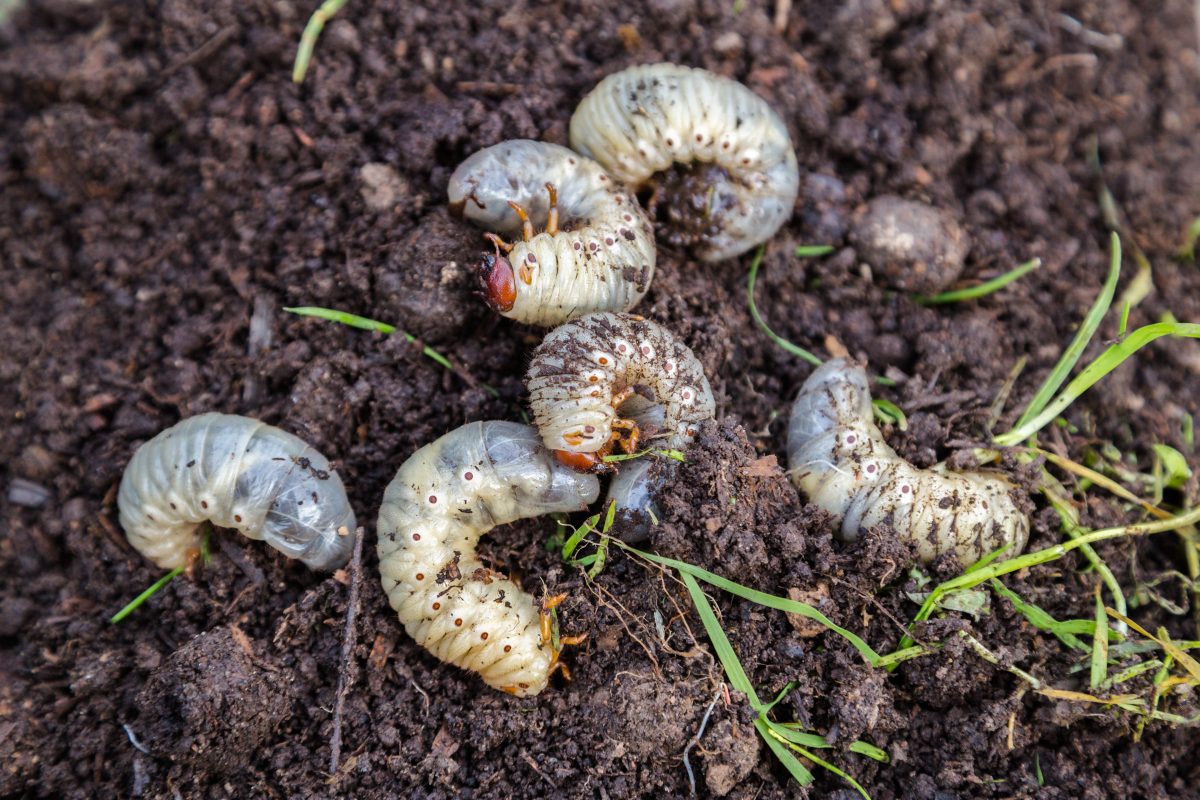What is a grub? In landscaping terms, grub is not the food you get on your way home after a long day. We can almost make the connection why food is nicknamed as such, but grub is definitely not something you want to keep around when it comes to your lawn. A grub is a baby beetle, often called larva. They are milky white in color and have C-shaped bodies making them look like little worms. What’s so bad about these little creatures? They eat the roots of a healthy lawn leaving your yard looking like a drought just hit it. In this article, we’ll discuss the ins and outs of grubs and how to get rid of them.
How do you know you have a grub issue?
There are a few tell-tale signs that you have grubs. You might discover there are grubs feasting on your healthy lawn roots if you see a lot of bird activity on your lawn during the evening or early in the morning. Grubs are tasty treats for birds, so if you see a lot of birds milling about your lawn during these times, they could be making dinner or breakfast out of nocturnal grubs emerging.
Another way to tell you might have a grub infestation is brown patches. Since grubs typically feed on grass roots, then a result of that would be visibly dead grass at the surface. You’ll typically see these brown, irregular shaped patches on your lawn coming out of a winter dormancy.
And finally, if you can simply roll back your grass without much resistance, this means your grass has lost its root structure probably due to grubs. You can often tell this is going on if the grass looks spongy and extra bouncy.
How do you treat grub infestation?
The key to treating grub infestation is detection and timing. Knowing that you have an infestation is half the battle. Additionally, knowing when and how to treat the problem is the other. The best time for treating a grub problem is in late summeror early fall. During this time the grub larvae will still be small, still feeding, and close to the surface. On the other hand if you tried treating a grub infestation in the spring, you’ll run into issues such as the grubs being too big and no longer feeding, or having spring rains wash the treatment away before even getting to the grubs. There are many really good grub treatment products offered at your local home improvement store. There are also natural remedies you can try using. One natural remedy we recommend is using neem oil. ingredient is a natural plant-based insecticide. It works more like a repellant inhibiting beetles and moths from laying their eggs. Even after larvae has been hatched, neem oil works to inhibit them from growing and feeding on your lawn. We recommend spraying your lawn with neem oil at night and also immediately after a rainfall.
Grubs are extremely destructive. A grub infestation can devastate your lawn. If left undealt with, this issue can repeat causing major damage to your lawn in ways that you can’t quickly come back from. It’s important to stay vigilant and watchful over your lawn. Look out for signs of grub infestation and work quickly to rid your lawn of them. If you need professional help maintaining your lawn, give us a call. We provide free estimatesand would love to help make your lawn something you can be proud of.
